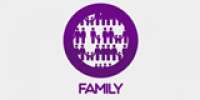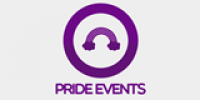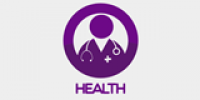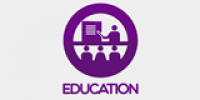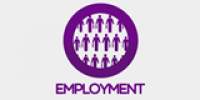APPLICATION CLOSED / Workshop: “Responding to the anti-gender movement” / 31 January – 2 February 2019, Brussels
Apply now for a participatory training on building new narratives in response to the anti-gender movement.
In this workshop, you will:
- Understand more of the contexts in which the so called ‘anti-gender’ movement operates, the strategies used and the content of their messages;
- Exchange and pull together knowledge, tools and practices of responding to ‘anti-gender’ forces
- Map existing resources and assess needs within the movement to effectively respond to the anti-gender movement;
- Learn about the role of communication, values and framing in social change;
- Learn new tools for framing and strategic communications, including campaigning good practices, framing activities and methodologies to do audience research and message testing;
- Learn about steps to build new narratives in response to the ‘anti-gender’ discourse in your context and how to test if they work.
Complete the application form and return to Laura Piazza ILGA-Europe Senior Campaign and Programmes Officer at laura@ilga-europe.org before 9 December 2018 at 18.00 CET.
What’s the context for this workshop?
Heterogeneous conservative and religious actors are collaborating nationally and transnationally against so-called ‘gender theory’, ‘gender ideology’ or ‘genderism’. Often referred to as the ‘anti-gender movement’, it is often a coalition of conservative and religious forces, spreading discourse against LGBTI rights, reproductive rights, sexual education, trans rights and gender studies. In some countries the discourse has led to mobilisations against significant national reforms, such as the refusal to ratify the Istanbul Convention or blocking LGBTI hate crime legislation.
Anti-gender forces tap into different fears and anxieties of specific national contexts, shaping the transnational discourse to fit distinct political projects. They converge with rising right-wing populism across Europe, not only affecting women’s and LGBTI rights but also national elections.
Discourse about so-called ‘gender ideology’ is present in a large number of European countries and due to social media and digital tools, concepts and communication strategies travel fast. Despite some remarkable successes, it has been so far challenging to respond effectively and to develop our own narratives. We need strategic thinking, planning, and the mastering of many skills. Developing new narratives, framing and testing our messages are a crucial part of these skills.
What will the workshop cover?
The workshop will combine theoretical content, participatory activities, peer-learning, input from experts and activists beyond the LGBTI movement, as well as lots of opportunities to share your own experiences and hear from the experiences of others. The workshop builds on the work developed by ILGA-Europe on strategic communication and campaigning. For more information about ILGA-Europe work on the topic and access to resources visit the dedicated section of our website.
Things we’ll cover:
- What we know about the strategies of our opponents and how LGBTI and/or broader human rights organisations responded so far
- Audience analysis, message framing and testing
- Narrative development work at country level: moving from your vision through to the outcomes you want to see.
Who should come?
We encourage participation of two people per country, where possible from different organisations and with a different set of competences, to foster cooperation in view of the forthcoming efforts.
The main participant shall work or be active in an LGBTI group or organisation in the broader geographic Europe and Central Asia. In addition to that:
- Your organisation supports your participation in the training;
- You personally have a leading role in developing your organisation strategies and work in multiple domains e.g. communications, advocacy, campaigning, alliance building.
- You are able to participate for the full duration of the training and to communicate effectively in English.
For the second participant, we encourage identifying, where possible, someone who works in close cooperation with the LGBTI group but who comes from a different organisation with a different focus area, e.g. LGBTI activists from a different group/organisation; activists working on women’s rights, sexual education and other areas targeted by anti-gender forces. Where relevant and duly motivated the second participant can be a professional bringing a specific competence, e.g. experts in communication and research cooperating with LGBTI organisations; academics; influencers; other allies that will contribute to the forthcoming reframing efforts. If it is not possible to identify someone from another organization, a second person from the same organization is welcome to apply.
Both applicants should fill in one application form together.
Selection criteria
The selection will be based on the:
- Current country situation and relevance of the ‘anti-gender’ forces in the national context
- Ongoing or forthcoming plans to work on new narratives to respond to the ‘anti-gender’ rhetoric
- Cooperation or intention to build alliances (with e.g. human rights organisations, scholars, experts, consultants) in the development of new narratives to respond to the ‘anti-gender’ rhetoric
- General quality of the application;
- Engagement of the group or organisation in communication, campaigning, advocacy, etc.;
- Role of the applicants within the organisation and ability to guarantee a follow-up;
- Motivation
Practical details
Date and Place of the Training
Date: 31 January-2 February
Place: Brussels, Belgium
Arrival: 30 January, Wednesday
Departure: 2 February, Sunday, after 18:00 or 3 February, Sunday
Travel reimbursement
Travel costs will be reimbursed by ILGA-Europe following full attendance at the training. Upon selection, participants are expected to make their own travel arrangements by the cheapest mode of transport available (economy class airfare or 2nd class train). Should your costs exceed € 250, confirmation should be sought from ILGA-Europe prior to the booking/purchase of the ticket. Local travel (buses, trains, etc.) will be covered through a per diem provided at the training.
Meals and accommodation
ILGA-Europe will cover the accommodation and meals from the evening of Wednesday 30 January to the evening of 2 February inclusive. Any other costs, relating to meals and accommodation outside of these times, will have to be covered by the participant unless previously agreed with ILGA-Europe.
Application process
Please complete the application form, and return to Laura Piazza ILGA-Europe Senior Campaign and Programmes Officer at laura@ilga-europe.org before 9 December 2018 at 18.00 CET.
The result of your application will be announced by 20 December 2018.
Download the application form here.
You are not sure what the anti-gender movement is and if you should apply for the workshop? Watch this short video from Laura Piazza and Valeria Santostefano to dispel your doubts.


 Print HTML
Print HTML
